Description
FlowZone Typhoon 3 Specifications:
Spray Time: Up to 3 hours
Spray Distance: >30 Feet
Pressure: 7-115 psi
Total Output: Up to 110 gallons per charge
Lithium-ion Battery: 18V/5.2Ah
Flow Rate: 0.42-1.12 gpm
Pump Type: Heavy-Duty Diaphragm
Battery Charge Time: 2 Hours
Battery Cycle Life: 1,000 Charge Cycles
FlowZone Typhoon 3 Operating Instructions:
- Do not allow familiarity with products to make you careless. Remember that a single moment of carelessness is sufficient to cause serious injury.
- Always wear eye protection with side shields when handling or operating this sprayer. Failure to do so could result in serious injury from chemical contact or flying dirt or debris.
- The Lithium-ion battery pack can be used in temperatures down to 32ºF. When operating in cold temperatures, put the battery pack in the battery compartment and use the sprayer in a light duty application. After about a minute the battery pack will warm up and begin operating normally.
- Always use the correct power setting for your application. Using the correct PSI and flow rate will result in a safer and more thorough treatment. For calibration resources please contact FlowZone technical support. (Note: Always refer to local, state, and federal laws and regulations regarding your application.)
- Do not use the sprayer if the power switch is not functioning correctly. Any power tool that cannot be controlled with the switch is dangerous and must be repaired.
- Remove battery before making any adjustments, changing accessories, or storing the sprayer. Disconnect the sprayer from the power source by removing the battery pack. These preventative safety measures reduce the risk of starting the sprayer accidentally.
FlowZone Safety:
- Do not store chemicals in the tank. Chemicals can degrade seals and hoses. Drain and clean sprayer after each use. Failure to do so may void the sprayer warranty.
- Remove gloves before handling battery pack. Chemicals may be damaging to plastics.
- Thoroughly inspect the interior, exterior, and all components of the sprayer before each use. Check for cracked and deteriorated hoses, leaks, clogged nozzles and missing or damaged parts. If damaged, ensure the sprayer is repaired before use. Many accidents are caused by poor maintenance.
- Always remove the battery pack from the sprayer before performing any maintenance, storing or draining of the sprayer.
- Do not eat or smoke while handling or operating the sprayer. Refer to the product label of the chemical being used for user safety practices.
- Do not use the battery compartment for storage.
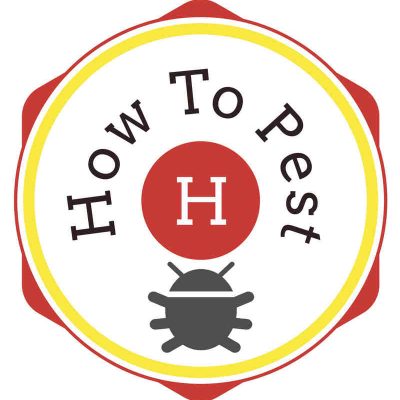

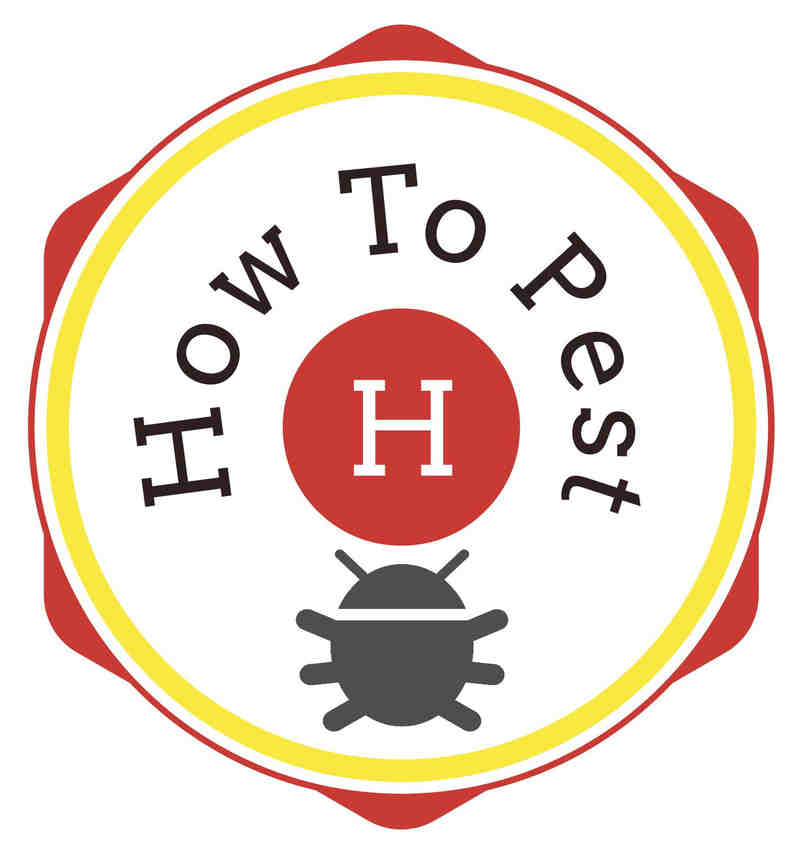

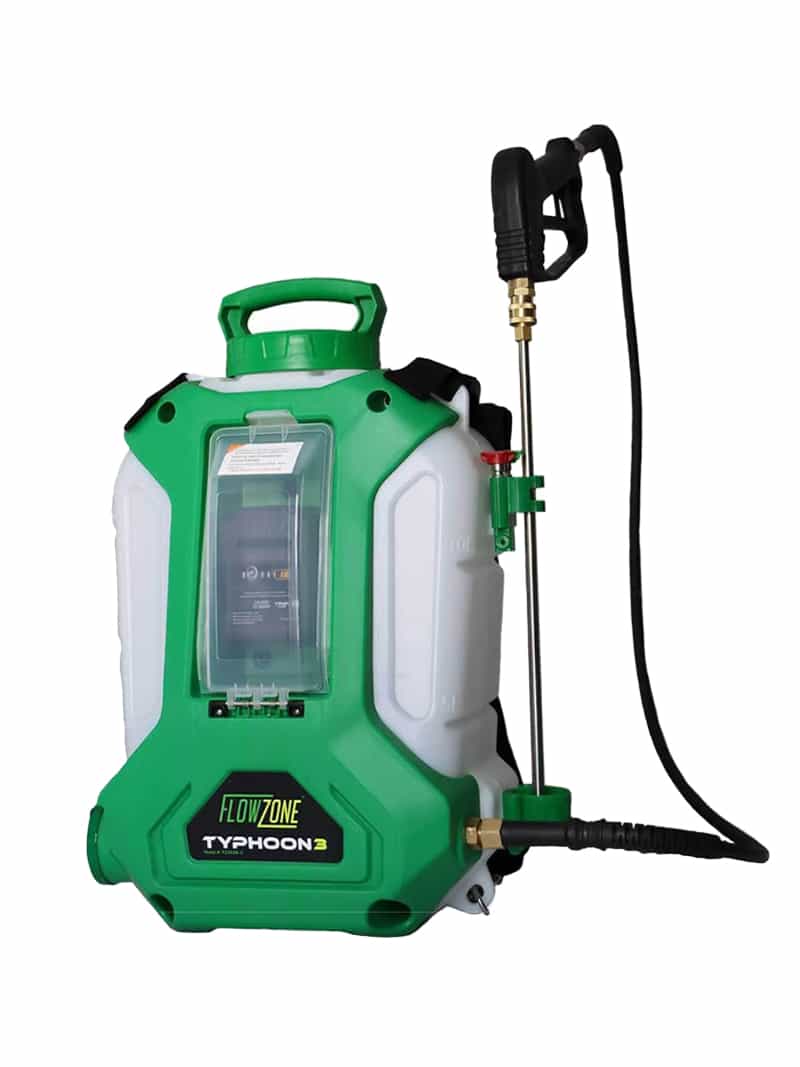
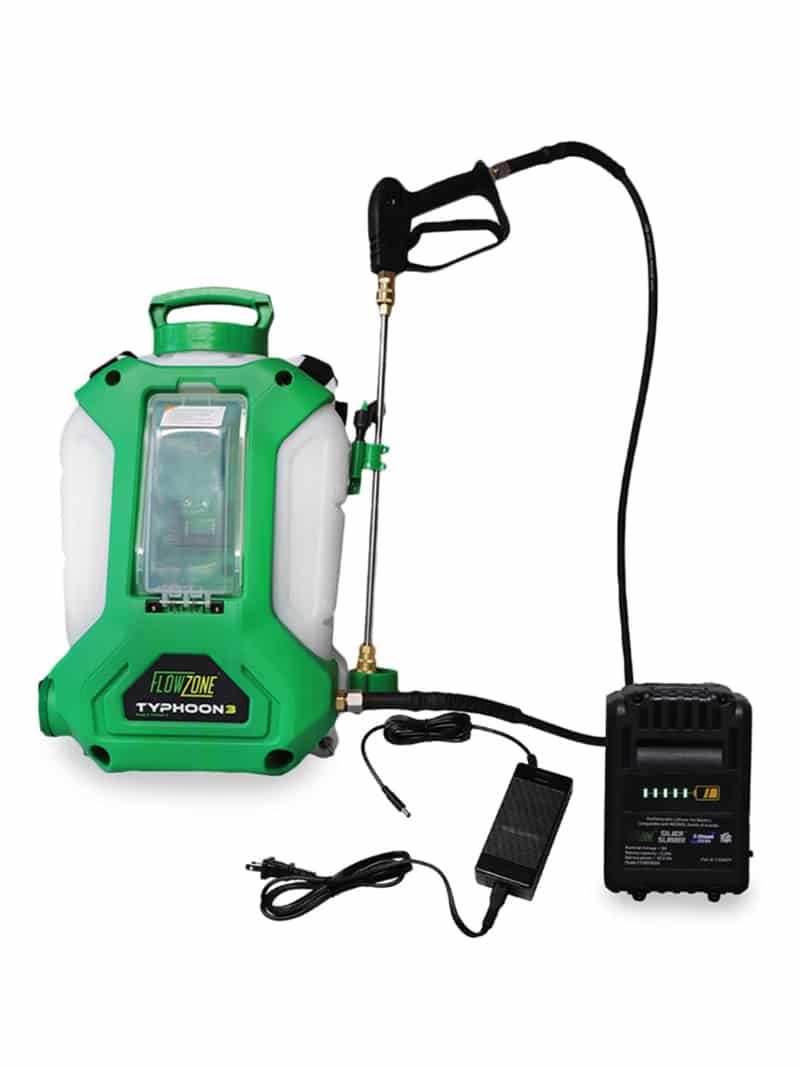
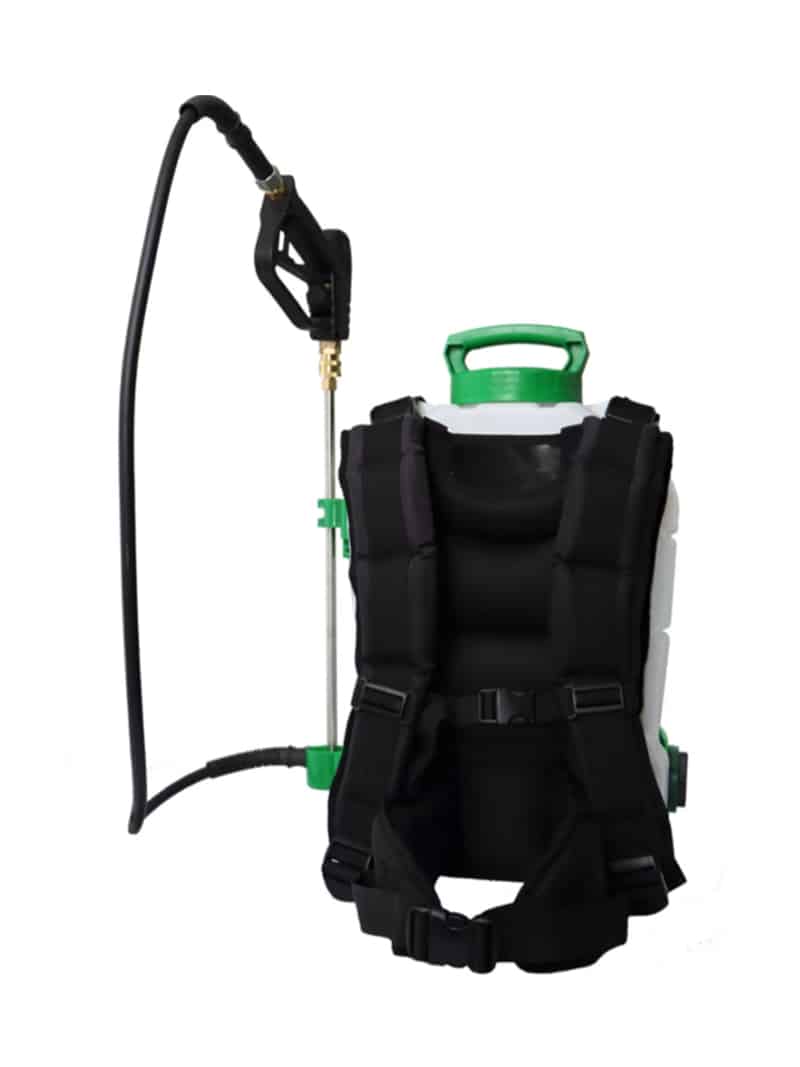
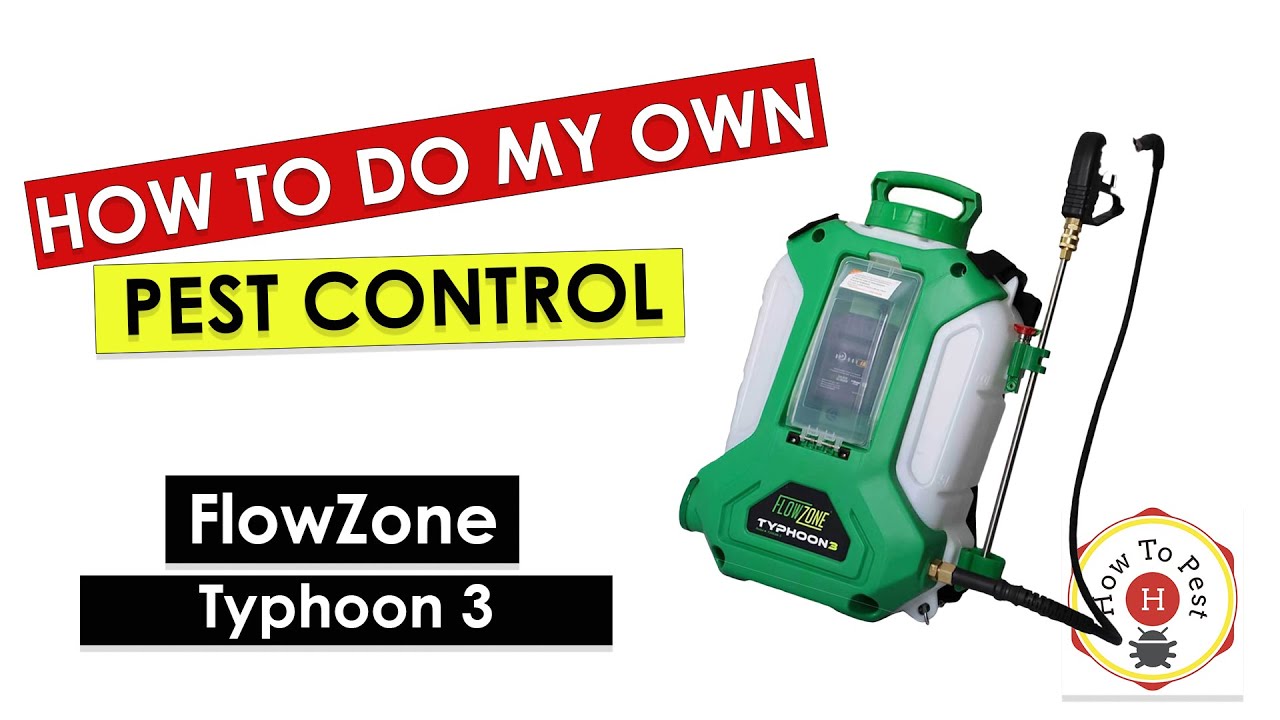
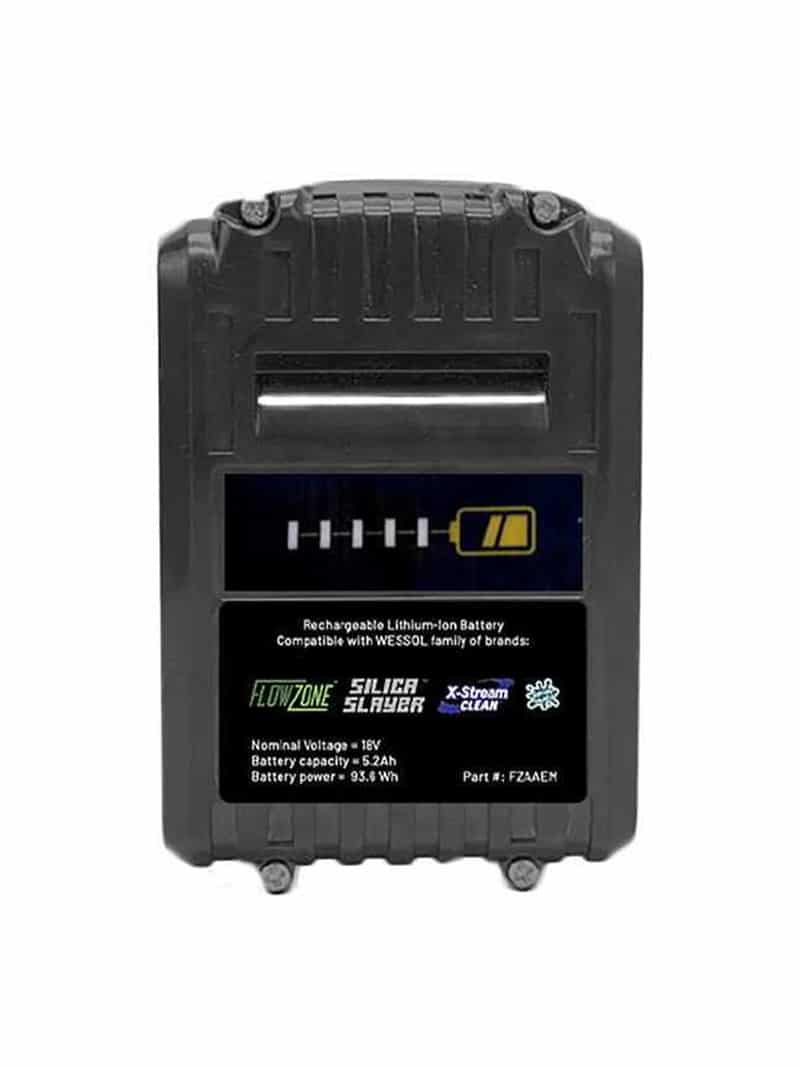
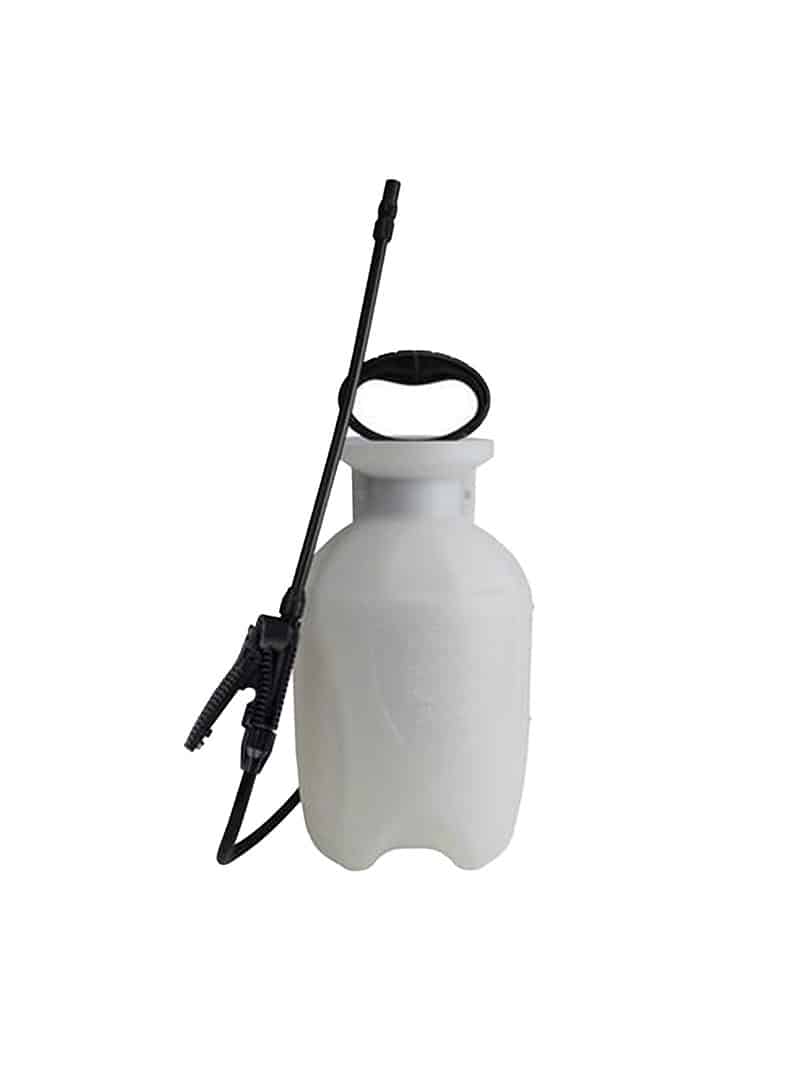
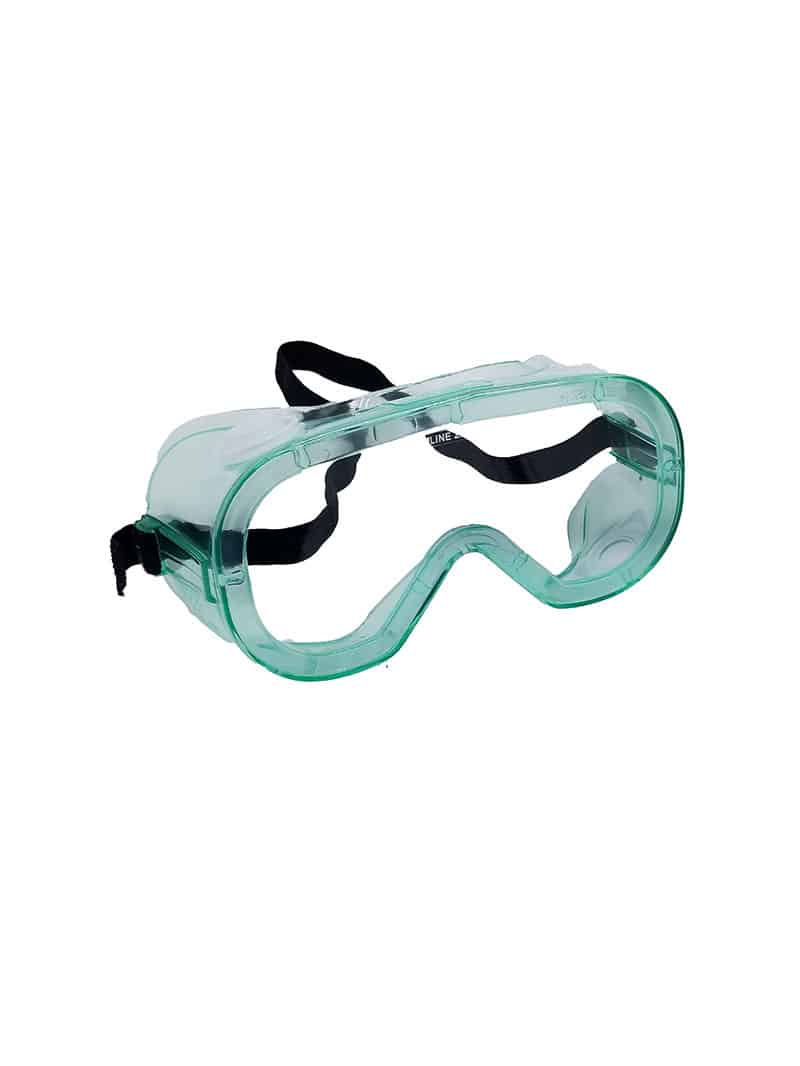
Reviews
There are no reviews yet